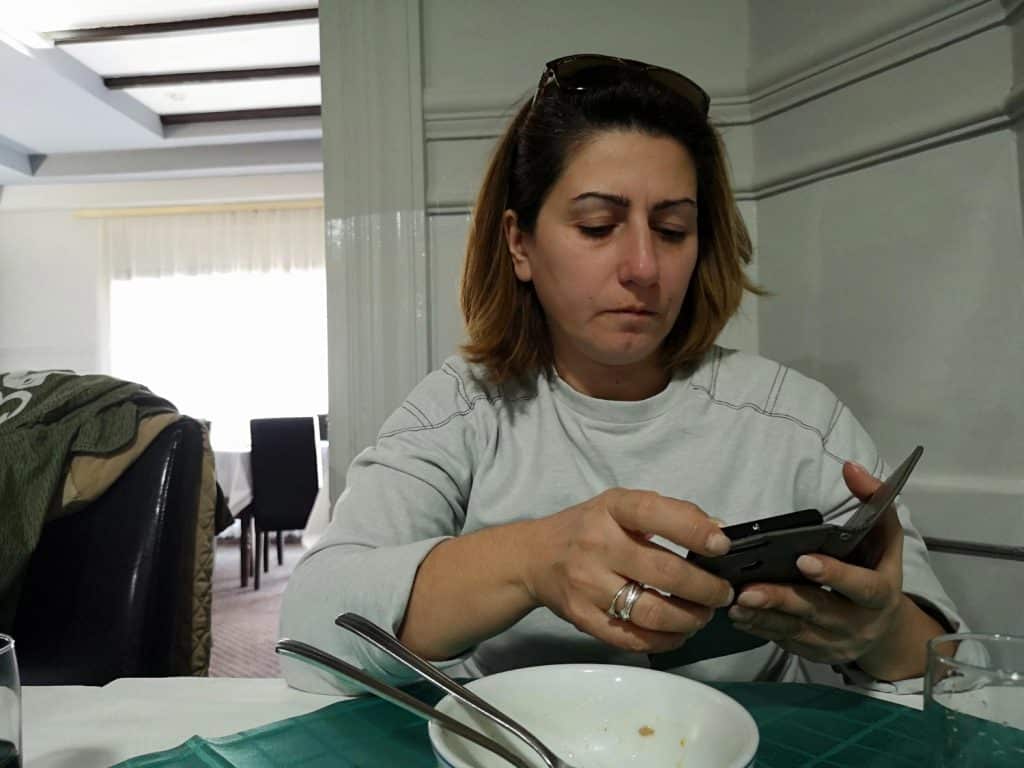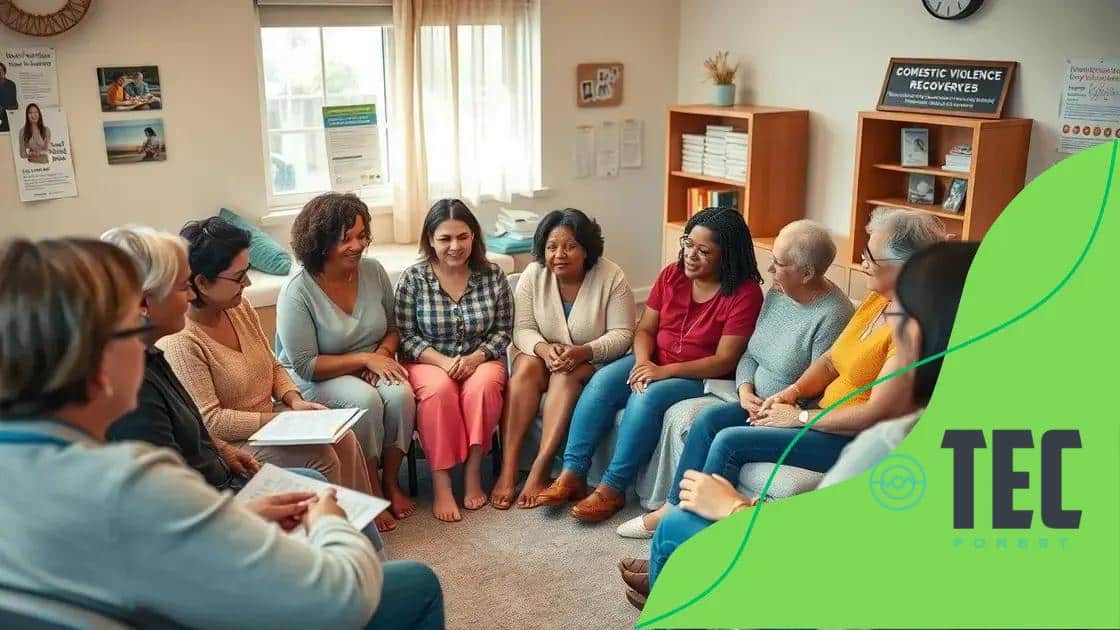Advertisement
Domestic violence victims can access portable benefits, which provide essential support like housing, healthcare, and job training, helping them rebuild their lives and achieve stability.
Domestic violence victims seek portable benefits to obtain crucial support while navigating the challenges after leaving abusive situations. But how do these benefits really make a difference? Let’s uncover the details together.
Advertisement
Understanding portable benefits
Understanding portable benefits is vital for domestic violence survivors. These benefits provide assistance that can move with the individual, ensuring they receive help wherever they go. Unlike traditional benefits, which may be tied to one employer or location, portable benefits are designed to support individuals through transitions, especially during challenging times.
What are portable benefits?
Portable benefits can include financial support, healthcare access, and job training resources. They are designed to be flexible and accessible to those who need them.
Advertisement
Key features of portable benefits:
- Flexibility: Individuals can access benefits regardless of employment status.
- Support during transitions: Helps victims during relocation or job changes.
- Customization: Benefits can be tailored to meet the specific needs of individuals.
For many survivors, knowing that aid is available no matter where they go can be incredibly relieving. It creates a sense of security and hope for the future. The emphasis on adaptability means that these benefits can evolve alongside a survivor’s circumstances, addressing various needs as they arise.
Moreover, portable benefits foster a sense of independence. By having access to essential resources, survivors can focus on rebuilding their lives rather than stressing over maintaining eligibility for support. The ability to transition smoothly from one situation to another helps in creating a stable environment for themselves and their families.
Why are portable benefits important?
These benefits are crucial in various contexts, allowing survivors to take control of their situations. Understanding how to access and utilize them means advocating for oneself and finding long-term solutions to escape the cycle of abuse.
Access to portable benefits also encourages participation in the workforce. As victims obtain the skills and resources they need, they become empowered to seek employment opportunities that suit their new lives. This cycle of support not only helps during tough times but also lays the groundwork for a brighter future.
Impact of portable benefits on domestic violence survivors

The impact of portable benefits on domestic violence survivors is profound and multifaceted. These benefits provide crucial support tailored to the unique needs of individuals facing challenges after leaving abusive situations. By offering assistance that can travel with the survivor, these programs help to ensure that victims can access the resources they need regardless of their circumstances.
Enhancing stability and security
One of the significant impacts of portable benefits is the enhancement of stability and security for survivors. Many individuals fleeing domestic violence face immediate financial uncertainty. Access to benefits like healthcare and housing assistance enables survivors to stabilize their lives.
Key impacts include:
- Financial independence: Survivors can manage their living expenses without relying solely on another person.
- Improved mental health: Stability often leads to better emotional well-being, reducing stress and anxiety.
- Access to vital resources: Portable benefits can include job training and educational support, empowering survivors to pursue careers.
Having these support mechanisms in place allows survivors to move forward with their lives. They can focus on rebuilding their self-esteem and establishing a safe environment for themselves and their children. The psychological benefits of having reliable support cannot be underestimated; knowing that assistance is available gives survivors the courage to take bold steps toward independence.
Moreover, portable benefits encourage survivors to engage with their communities. By participating in programs aimed at enhancing skills and promoting employment, they foster connections that can be supportive and sustaining. When survivors have access to a network of resources, they are more likely to recover and thrive.
Empowerment through education and skills
Another critical impact lies in education and skills training. Many portable benefits programs include opportunities for continuing education, job training, and workshops. This focus on skill development is essential in helping survivors secure stable employment.
Survivors equipped with new skills and knowledge can compete in the job market more effectively. The gains in education enhance their employability and allow them to achieve their professional goals. This increased sense of purpose can further contribute to their overall recovery.
How to access these benefits as a victim
Accessing portable benefits as a victim of domestic violence can be straightforward but requires understanding the available resources. Many organizations and agencies provide pathways to access these benefits, and knowing how to navigate this system is vital for survivors seeking assistance.
Identify available resources
The first step is to identify local resources that specialize in helping domestic violence survivors. Look for organizations that offer guidance on portable benefits, as they can help connect individuals to the right services.
Key steps to access benefits:
- Research local nonprofits: Many nonprofits focus on assisting domestic violence victims and can provide information on available benefits.
- Contact helplines: National and local helplines can offer immediate support and guidance on how to access benefits.
- Gather necessary documentation: Be prepared to provide identification and any relevant records to access benefits.
Once resources are identified, it’s important to reach out for assistance. Many organizations offer case management services that can help survivors file paperwork and obtain benefits. This support can significantly ease the burden of navigating the system alone, allowing survivors to focus on healing and rebuilding their lives.
Additionally, many communities have legal aid services that can assist in understanding rights and accessing benefits. Survivors should take advantage of these services to ensure they receive the support they need. Knowing one’s rights is empowering and can make the process of accessing benefits smoother.
Utilizing online resources
In today’s digital age, online resources are invaluable. Survivors can find detailed information on how to apply for benefits through various websites dedicated to domestic violence support. Many of these sites provide step-by-step guides and links to necessary forms.
Engaging in online communities can also provide emotional support and shared experiences, making the process less isolating. Online forums and social media groups often share tips on accessing benefits and navigating challenges.
Community resources for support

Community resources play a critical role in supporting domestic violence survivors. These resources offer various forms of assistance, from safe housing to counseling services, ensuring that those in need receive comprehensive support. Familiarizing oneself with these resources can make a significant difference in recovery.
Types of community resources available
Survivors should explore the types of resources available in their local communities. Accessing the right support can empower individuals and help them regain control of their lives.
Key community resources include:
- Shelters and housing assistance: Safe shelters provide immediate refuge and long-term housing solutions.
- Counseling and therapy services: Mental health support helps survivors process their trauma and build coping strategies.
- Legal assistance: Legal aid can guide survivors through obtaining restraining orders and navigating the justice system.
- Support groups: Connecting with others who have shared similar experiences can provide emotional support and understanding.
Finding these resources often starts with local domestic violence organizations. Many nonprofits are dedicated to helping survivors, and they can assist individuals in locating the services they need. The staff at these organizations are trained to help victims feel safe and supported as they navigate their options.
In addition to local nonprofits, many communities also have governmental resources. These may include programs designed to assist victims with financial aid, job training, and educational opportunities. Survivors should not hesitate to reach out to these resources, as they can help create a more stable future.
Online and national resources
For those experiencing difficulties in finding local services, online resources can be incredibly helpful. Websites dedicated to domestic violence support often provide databases of local resources and can connect individuals to national hotlines. These hotlines offer immediate assistance and can guide survivors to the closest resources available.
Overall, the journey to recovery can be challenging, but leveraging community resources makes it more manageable. Survivors equipped with the right support can rebuild their lives and create a safe, empowered future.
Real-life stories of survivors and benefits
Real-life stories of survivors highlight the transformative power of portable benefits in their journey toward recovery. These narratives serve as inspiring examples of resilience and the positive impact that access to support can have on individuals who have faced domestic violence.
Personal journeys of recovery
Each survivor’s journey is unique, yet many share common threads. For instance, one survivor, Maria, found herself in a challenging situation after leaving an abusive relationship. Initially, she struggled with housing insecurity and financial instability.
Key elements of survivors’ experiences:
- Access to shelter: Maria sought refuge in a local shelter that provided not only safe housing but also counseling services.
- Job training opportunities: Through a portable benefits program, she enrolled in job training, learning valuable skills that enhanced her employability.
- Emotional support: Engaging with a support group helped her connect with others who understood her experiences.
Through these resources, Maria reclaimed her independence. With a stable job and a supportive network, she began building a new life for herself and her children. Her story illustrates how portable benefits can empower survivors to break the cycle of abuse and achieve their goals.
Similarly, John’s story showcases the importance of access to mental health services. After leaving an abusive relationship, he faced significant emotional challenges. With help from community resources that offered counseling through portable benefits, John slowly rebuilt his self-esteem.
Impact of shared experiences
Stories like Maria’s and John’s resonate widely, emphasizing the importance of community resources. They remind us that with the right support, survivors can overcome past trauma. These narratives not only inspire others but also raise awareness about the critical need for accessible benefits for those in similar situations.
Real-life stories highlight how valuable these supports can be in offering hope and practical solutions. Survivors often encourage others to seek help and access the resources available to them, reinforcing the idea that they are not alone in their battles.
FAQ – Frequently Asked Questions About Portable Benefits for Domestic Violence Survivors
What are portable benefits?
Portable benefits are flexible support systems that can travel with a survivor, providing assistance regardless of their employment or housing situation.
How can I access these benefits?
Accessing portable benefits typically involves reaching out to local domestic violence organizations that can guide you through the process and connect you to available resources.
What types of support do portable benefits include?
Portable benefits can include housing assistance, healthcare access, job training, and mental health services, tailored to meet the needs of survivors.
Why are real-life stories important for survivors?
Real-life stories inspire and empower other survivors, showcasing how access to resources can lead to recovery and stability.
